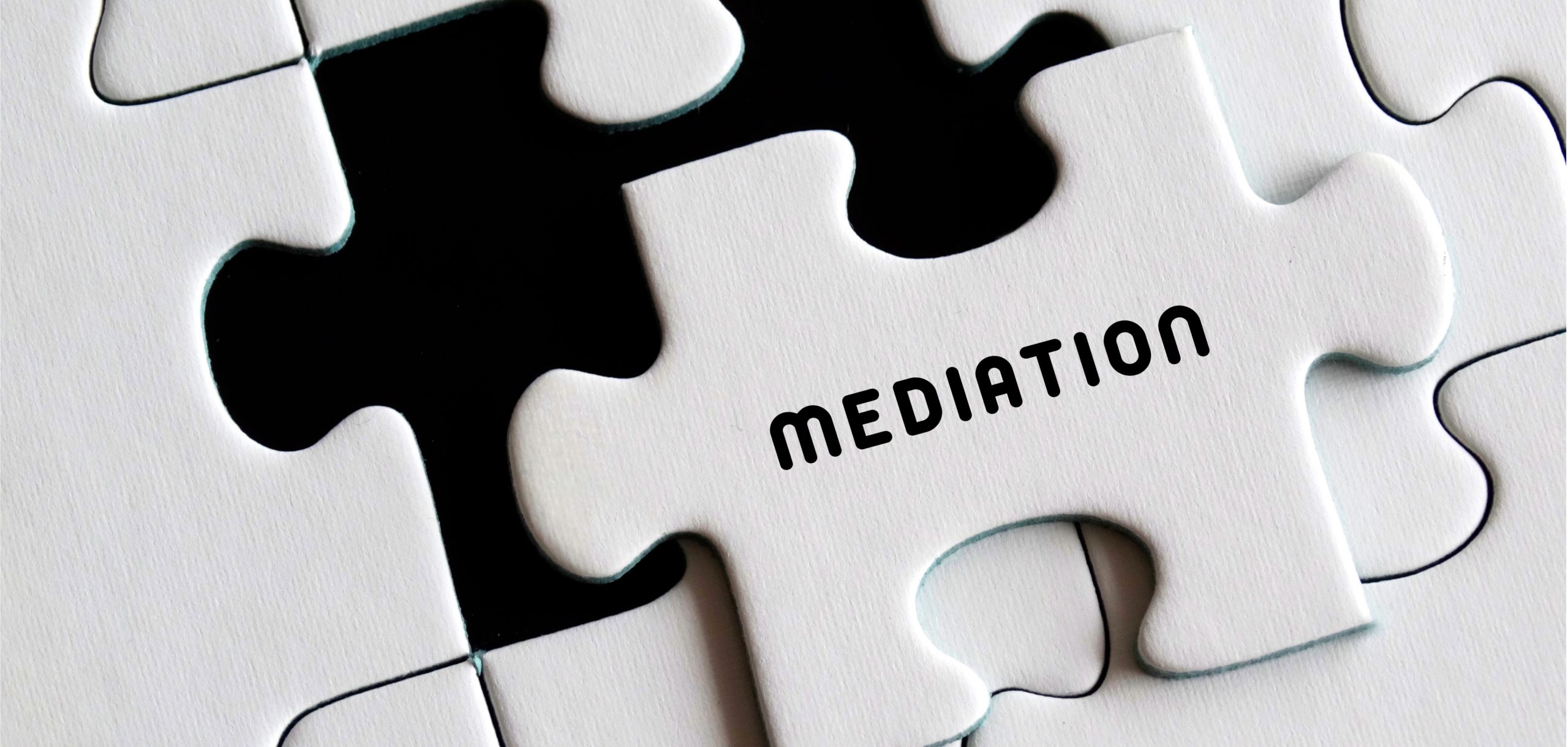In this article, we discuss proposed changes to the Disputes Tribunal that may significantly impact how mid-value disputes are resolved — including a potential increase to its jurisdiction and what that could mean for access to justice.
Mediation – What it is and how it fits alongside traditional litigation
A commonly held view is that litigation through the Courts is a lengthy and costly exercise, which can certainly be the case. This article reviews the mediation process, and its ability to resolve disputes either in conjunction with or as an alternative to Court litigation.

Mediation
Mediation allows the parties to a dispute to choose a third party mediator whose job is not to judge or determine a dispute, but rather to assist parties to negotiate a resolution to that dispute. Good mediators are particularly good at closing the gap between different parties’ positions to reach settlement.
A mediated settlement almost always involves compromise. That is, the parties make concessions in order to reach a settlement, and neither party achieves what they consider to be a perfect outcome. However, with the right preparation and the use of a good lawyer and an experienced mediator, mediation can be a quick and comparatively inexpensive way to resolve disputes either prior to court proceedings being issued, or more commonly after they have commenced. If both parties agree to attend a mediation, it can be progressed very quickly and is often only dependent on the availability of the parties and the chosen mediator. There may be some value in agreeing issues prior to the mediation (especially if several matters are in dispute) and exchanging key documents, but otherwise most of the work is done at the mediation.
Prior to attending the mediation, you and your lawyer should have a clear idea as to what is your Best Alternative to Negotiated Agreement (BATNA). That is, what will happen if the negotiation fails – what steps will you need to take to progress your claim or defend a claim against you, and where will that get you. Generally, you should not accept a worse resolution than your BATNA, which is essentially your bottom line. To determine your BATNA, you will need to have a frank discussion with your lawyer about the strength of your case and the cost and time involved in taking a matter to trial. It is important to remember that there is also an emotional cost involved in pursuing or defending legal proceedings, and that needs to be factored into any settlement proposals made, alongside the consideration of legal risk and commercial pragmatism. During the mediation it is important that you and your lawyer carefully consider any offers or any concessions that you make, and take regular breaks to consult with your lawyer throughout the process. Mediations can last until the early hours of the morning and you want to ensure that concessions are not made due to tiredness that you will later regret.
Even if a mediated agreement is not reached on the day, there are still advantages in attempting mediation. The cost is significantly less than proceeding through the courts, and attending mediation provides parties with the opportunity to thoroughly explain their case and position. Discussions at mediations are almost always on a without prejudice basis, which means that any settlement offers or concessions cannot be referred to or relied upon in any proceedings issued. However, if a matter does not settle, the mediation may result in the parties being able to narrow the issues. One of the big criticisms often levelled at the court process is that the parties may not actually see each other face to face until the trial, at which point the parties are so polarised that any negotiated settlement becomes difficult, if not impossible.
Proceedings through the Courts
Sometimes court proceedings are the only, or best, option for resolving matters. This may be due to the other party issuing proceedings against you, being unwilling to attempt mediation, or generally being unreasonable. Equally, the mediation process may have been attempted but may not have resolved the dispute. The Courts have recognised that there are issues with access to justice and delay, and have made several changes to the rules governing court procedures in an attempt to streamline the litigation process over the years. In 2009, for example, the District Court Rules were overhauled to provide for a new system for progressing matters through the District Court. This included new forms that were easier for parties to complete, and a process for the initial exchange of information. Although the process improved access to justice, there were issues with the amount of time it took to progress a matter. The District Court Rules were amended again in 2014 to bring the procedure back in line with the High Court procedure. The introduction of the District Courts Act 2016 has seen further changes with the most significant being a change to the jurisdiction of the District Court, being that the District can now hear claims where a plaintiff is claiming $350,000 (it used to be $200,000). Filing proceedings in both the District and High Court can be expensive and time consuming. Judicial settlement conferences are generally ordered and mean that nearly a year can pass before the matter is even referred to the Court for a fixture. It is then a case of the Court allocating hearing time which, depending on the length of the hearing required, can take up to a year. The Rules Committee responsible for the rules governing proceedings in the Courts recognises the issues and is consistantly in the process of reviewing the system to reduce delay.
Conclusion
Every dispute is different, and the options for resolution and strategic approach will depend on the particular claim being brought and the issues to be resolved. It is important, when involved in a dispute, to be well informed of your options and to constantly review your position and whether other approaches may better achieve your desired outcome.
Litigation lawyers are specialists in different forms of conflict resolution, and in advising on overall strategy to resolve either claims to be brought, or claims to be defended. Consulting with your lawyer at an early stage will often streamline the process, and, at the least should give you the comfort of knowing that you have an overall plan to either progress a claim you want to bring, or defend a claim brought against you.
This article is current as at the date of publication and is only intended to provide general comments about the law. Harkness Henry accepts no responsibility for reliance by any person or organisation on the content of the article. Please contact the author of the article if you require specific advice about how the law applies to you.
For further information



